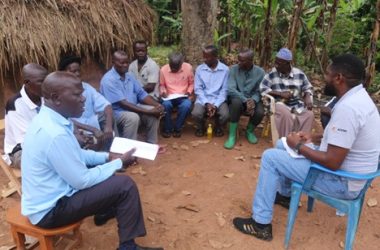As Uganda prepares to produce its inaugural Extractives Industries Transparency Initiative (EITI) report in June 2022, the issue of disclosure of beneficial ownership by licensed companies has lately dominated the discourse on accountable governance of the sector.
The disclosure of beneficial ownership by EITI implementing partners, which Uganda endorsed in August 2020 as the 54th implementing partner, came into effect on January 1, 2020 as a reporting requirement.
The EITI defines beneficial ownership as the ‘hidden’ owners of a company, which is very common especially in the extractives sector where the real owners usually are either politically connected, or are willing to engage in questionable deals to generate quick profits though a chain of companies often registered in multiple jurisdictions.
During the launch of the Resource Governance Index for Uganda 2021, the Natural Resource Governance Institute (NRGI) noted the challenge of beneficial ownership transparency as a dent in the transparent and accountable resource governance.
Paul Bagabo, senior officer at NRGI said the lack of a publicly accessible cadaster for the oil and gas sector, like it is for the mining sector, is a challenge for Ugandans who are largely kept in the dark about who government is actually doing business with.
“We don’t know who owns the companies with which the government does business, and therefore are in need of laws requiring the public identification of ‘beneficial owners,” he said during the launch of the RGI.
According to the EITI, challenges abound especially concerning inadequate information on the contracting process and disclosure under the current legal and regulatory regime; information on payments and receipts, conflicting interest between the industry players and government and obscure mining operations.
Recently, the Solicitor General, Francis Atoke, made news when he warned government not to disclose the contents of the East Africa Crude Oil Pipeline contracts, a move that experts cite as defeating the purpose of EITI fulfilling its mandate
Siraji Magara, extractives coordinator at Oxfarm Uganda, cites that unfortunately, there isn’t any standalone legislation in Uganda regarding beneficial ownership transparency meaning it remains a case of goodwill on the side of companies to make such disclosures.
In this regard, Publish What You Pay’s Nelly Busingye contends: “The issue of beneficial ownership needs to be harmonised across all our legal frameworks if it is going to be meaningful for EITI. In some countries they have put clearer and stringent legislation for beneficial ownership like in Tanzania. So, I think maybe legislating beneficial ownership could be a step in helping streamline things.”
Saul Ongaria, the chairperson of the UGEITI Multi Stakeholder Group, told this publication that in support of their efforts, the Uganda Registration Services Bureau (URSB) is working to amend their laws that will among many other issues, require companies to disclose beneficial ownership.
This is reflected in minutes arising out of a UGEITI meeting held on August 10, 2021, where the URSB noted that they had submitted their Regulatory Impact Assessment for amendments to their Companies Act to the Ministry of Justice and would be engaging the First Parliamentary council to prepare the principals and the cabinet memo to that effect.
There is however a catch in beneficial ownership transparency as NRGI president Suneet Kaimal notes.
“Knowing who owns a company is not enough. Governments and companies must apply high ethical standards when evaluating that information. Anticorruption advocates and beneficial ownership transparency supporters must invest in how the data is used,” she cautioned at the EITI’s Beneficial Ownership Transparency Forum.
According to the EITI, developing countries have since 2011 lost a combined revenue of $1 trillion per year in shady deals for natural resources, through use of anonymous shell companies, money laundering and illegal tax evasion, all hallmarks of beneficial ownership.
Such vices are facilitated by weak governance, where companies are given access to lucrative extractive projects for unfair reasons.
Already some EITI implementing countries like resource-rich Ghana have established a Central Beneficial Ownership Register for all companies. This was enacted it into law in October 2020.
Accordingly, URSB has indeed indicated that with support of the UGEITI, they would be benchmarking countries that already have established beneficial ownership systems to learn from them.






